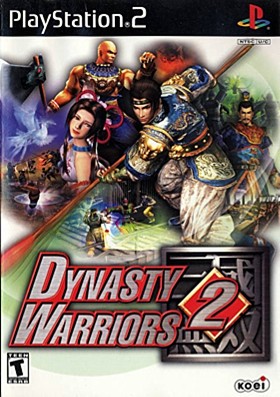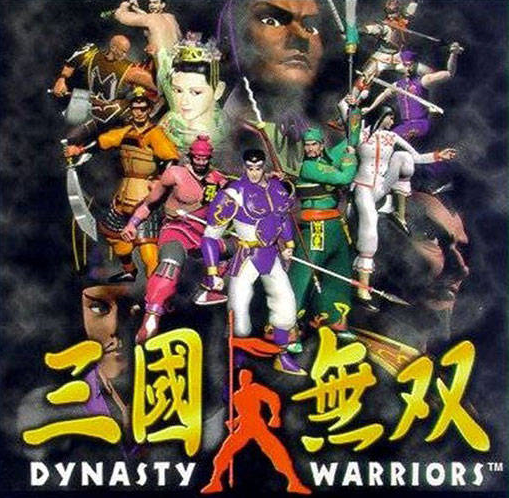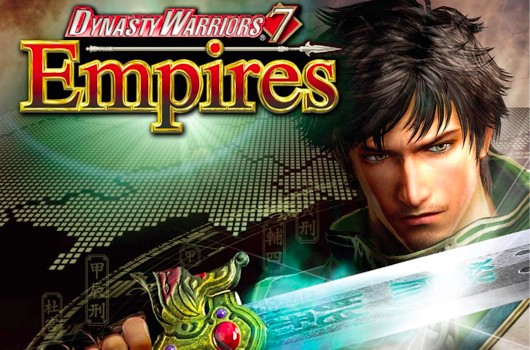Last updated on February 26, 2013
Yet another Dynasty Warriors game appeared on the horizon yesterday, an expansion on the seventh iteration of the series (specifically the ‘Empires” sub-label). It seems baffling, or maybe just a tiny bit insane, that the series continues regurgitating the exact same mechanics and CONTINUES to sell despite the naysayers. On one level, we might throw out a conjecture that people really, really like smashing one button over and over again. An overly simplistic generalization? Certainly! That does not preclude the fact that Dynasty Warriors, at hear, gives us a simple game with simple mechanics. It more than makes up for it in terms of setting and genuinely satisfying combat scenarios.
Unlike God of War, which seeks to make every single button press an innately gratifying experience, Dynasty Warriors provides the player with what I’d call “hilariously unrealistic fighting”. Why does my staff clip through one hundred enemies that surround me? I have no idea, but apparently my character became so powerful that he can utterly destroy fifty people in a single swipe. It’s completely unrealistic, yet deals in a real period in history. It praises the heroes of the Three Kingdoms period, yet romanticizes them in much the same way as the novel on which Dynasty Warriors based its narrative (if there is one for anyone unfamiliar with the time period). You get to do crazy things and kill more enemy soldiers than any game I can imagine. All pretenders to the throne (such as Ninety-Nine Nights) fall to Omega Force’s might. Yet, I’d call it one of the stupidest games in existence. Why?
Koei originally became famous as the creators of the “Historical Simulation Series” – that is, strategy and simulation games set in various time period. From Uncharted Waters, which chronicled the Age of Exploration in the 1500s to Romance of the Three Kingdoms, their premier strategy game which deluges the player with numbers, statistics, officers, province management and war, each had a unique foundation in actual events. Granted, they’re not completely accurate (for the purpose of entertainment, you understand), but they retain enough real-world flavor to capture your imagination and become engrossed in a new setting.
We might say this gave me a penchant for history, and then theology (which may as well be history given the span of its development). I even did a science/history fair project based on the Sengoku-Jidai (Period of the Warring States in Japan from early 1500s to early 1600s – hey, it was a long war) because I played so much of Lord of Darkness: Nobunaga’s Ambition. Great, great game (though unfortunately not on Wii Virtual Console, for whatever reason), and I even bought another copy once the original save battery died (I am tech savvy, but don’t make me open anything up or I will break it).

So when I saw Dynasty Warrior 2, from Koei, I initially held myself in quite a skeptical way. Then again, that first year of the Playstation 2 did not provide a wealth of titles for consumption. After Zone of the Enders came out, what else could I possibly play? Hey, Koei made an action game about the Three Kingdoms – and you actually get to fight! My wary skepticism came from the original (and thankfully forgotten) Dynasty Warriors on PS1, a rather terrible Soul Blade/Tekken clone that no one played. I didn’t even play it, and I knew it looked NO GOOD.

But Dynasty Warriors 2, a PS2 launch title, tried something different. It placed the player into a giant battlefield and set them loose to win the day for whatever army you wished. This could not happen on earlier system; though it worked in the vein of the side scrolling arcade action game (think Double Dragon or Final Fight), it transplanted the elegant simplicity of their moves and mechanics into a giant 3D world. Frankly, we found ourselves in a new era. It did something new, and transplanted an old style of game onto a new template. While it required vast amounts of repetition (endless repetition (perennial repetition))), sometimes that became the therapeutic game you needed. Plus, the animations for when foes got hit by a Musou attack still look priceless (see them flip! See them dance!).
Yet Dynasty Warriors (or Shin Sangoku Musou, as it was known in its original release) continues to do the same thing, over and over and over again. People eat it up. What’s wrong with them?
Look, I have not played a Dynasty Warrior-style game in years (last one I remember was the Sengoku Basara 2 expansion for my JP PS2 – excellent game, by the way). The last DW game I enjoyed with any seriousness came from DW3, which fixed some problems and added so many characters and battles your head would spin off at the content buried within. Over time, I just found myself losing the passion for maxing out upgrades, finding every weapon, and running around for hours and hours on end. Not that the almost-essential co-op mode didn’t help, but it certainly made things much more fun.
I knew a Dynasty Warriors addict: my uncle. I hooked him, and he played nearly every one that came out until his wrists gave out from carpal tunnel syndrome. No, really! I am not joking – he played the game so much that he literally destroyed his right wrist from the constant button pressing. He put every new game on its highest difficulty setting and proceeded to play through every game as they found release and he NEVER STOPPED until physically unable. Even when the opposing army decimated his AI allies (which I don’t think even happens on Normal), he would fight until the game’s timer ran out – 80 minutes straight of just killing everything on screen to where you break the kill counter. In Dynasty Warriors, the payoff doesn’t arrive from some magical cutscene or goal point, but from winning the victory after a long and hard fought battle. Even as the loser, you still fought to the end. I guess he liked that feeling a whole lot.
So, is there something wrong with my uncle’s compulsion to play the game? An addiction? Nah. Dynasty Warriors just hits that pleasure center of “fun”. Fun’s not a very descriptive word in our culture. It means, in dictionary terms, something lighthearted and amusing. It does not mean that said fun does not involve an investment of time nor skill, but it does mean that there’s an element of enjoyment and pleasure to the whole shebang. Life comes full of places to find enjoyment, and sometimes those simplest excursions remain the best, in real life or the digital world. When you’re looking for “meaning” under every nook and cranny or “narrative” within every hole, you might miss the cool and awesome stuff happening right before your eyes.
In Phillipians, Paul states in the greeting:
3 I thank my God in all my remembrance of you, 4 always offering prayer with joy in my every prayer for you all, 5 in view of your participation in the gospel from the first day until now. 6 For I am confident of this very thing, that He who began a good work in you will perfect it until the day of Christ Jesus. 7 For it is only right for me to feel this way about you all, because I have you in my heart, since both in my imprisonment and in the defense and confirmation of the gospel, you all are partakers of grace with me. 8 For God is my witness, how I long for you all with the affection of Christ Jesus.
Out of all the correspondences we have in the Bible’s current form, “joy” finds the most mention in the context of this particular community. Paul finds joy not only in community, but also in the various good thing happening in that community regardless of Paul’s own circumstance. The work continues. Things move on even when you’re personally incapacitated. The things we build grow into their own mold and shape. That state of joy, at least in a theological sense, isn’t just a state of gaiety or unbridled happiness; it comes from perspective.
And that, in a word, explains why I like what other people call “guilty pleasures” or “dumb fun”, like Dynasty Warriors. The Bible shows us a whole microcosm of human experience, but God doesn’t magically limit our recreational tendencies by virtue of being a Christian. We need to enjoy stupid things and to laugh at dumb things sometimes in addition to finding narratives full of meaning and serious issues. They’re part of that joy concoction. Does DW pervert the history? Absolutely it does! Am I particularly worried about it? Not really – I’ve read the novel twice now, and even that romanticizes the events on hand. It doesn’t mean you cannot overload on it (see: carpal tunnel syndrome), but balance it out. Do everything in moderation, as Scripture says again and again.
What we need more than ever in video games is lots and lots of dumb fun without all that pretension, a balance between meaning and fun. We can get that, right?

